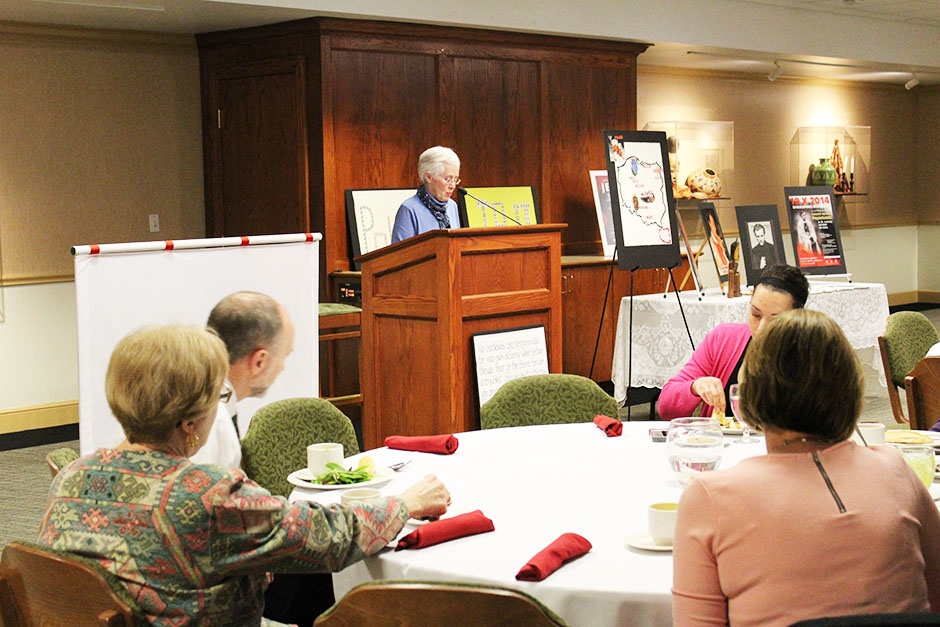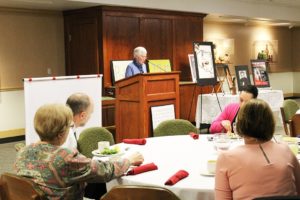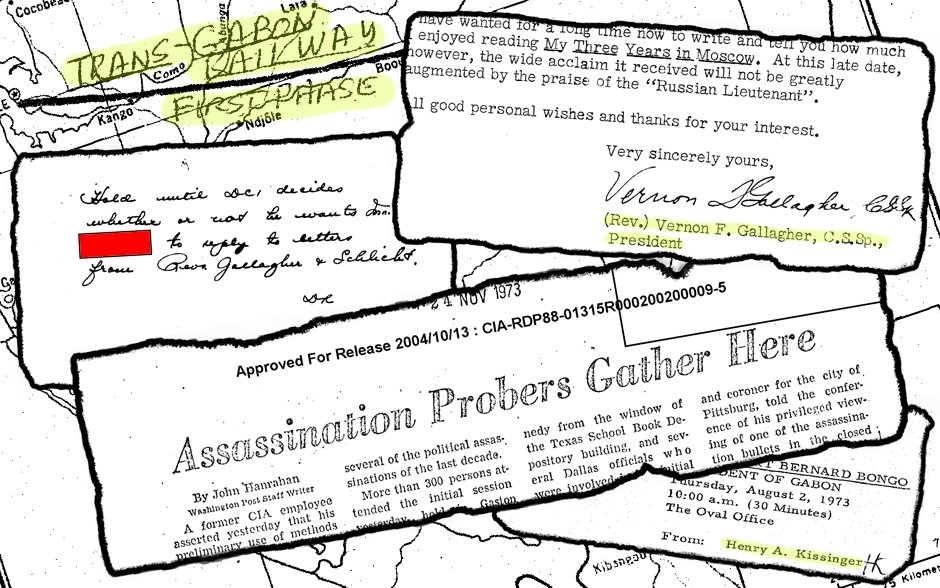
Author and activist Judith Kelly gives a talk about her book “Just Call Me Jerzy” April 5 in the Africa Room. Jerzy was a priest in Communist Poland in the 1980s.

Author and activist Judith Kelly gives a talk about her book “Just Call Me Jerzy” April 5 in the Africa Room. Jerzy was a priest in Communist Poland in the 1980s.
Hallie Lauer | Layout Editor
On Oct. 19, 1984, Polish secret police drowned a Polish priest who supported Poland’s anti-communist movement.
The life of that priest, Rev. Jerzy Popieluszko, was the subject of the final event in this year’s Libermann Lenten Luncheon Series for faculty and staff. Author and activist Judith Kelly gave a talk about her book, “Just Call Me Jerzy.”
The goal for this year’s Lenten Luncheon Series was to reflect on the pillars of Lent: fasting, penance and almsgiving.
“For the final luncheon of the series, we are hoping that the author will give us reflection on how we become effective witness of our Christian faith through the life and ministry of the Rev. Jerzy,” said Spiritan Campus Minister Giovan Cuchapin
Campus Ministry, along with the Theology Department and the McAnulty School of Liberal Arts, came together to plan these events.
Popieluszko, who preferred to be called “Jerzy,” was a Polish chaplain with ties to the Pittsburgh region. Jerzy was martyred for his support of the Polish freedom movement, known as “Solidarnosc” or Solidarity.
The Solidarity Movement was a nonviolent, anti-communist resistance and, according to Kelly, “Jerzy was absolutely key to that whole process of faith and resistance.”
Jerzy would give monthly sermons where he spoke out against the oppressive communist regime that had taken over Poland, and, more specifically, Warsaw, where Jerzy resided.
He was kidnapped, beaten and drowned by Polish secret police on Oct. 19, 1984 for these teachings.
His grave is now a pilgrimage site for millions of travelers, but outside of Poland, very little is known about this national hero.
“I had to write this book because no one had ever done the research on Jerzy’s early travels to the U.S. and Canada. Polish authors hadn’t, despite many, many books about him, and I felt I had to at least try before this information was lost,” Kelly said. “I wanted to offer this research and the resulting book as a way of thanking Jerzy for his spiritual help in finding my Polish family, a very life-changing experience.”
Kelly had first travelled to Poland in hopes of finding more about her “lost family” ancestors who lived in Poland. After going to Jerzy’s grave at the church where he preached, the next day Kelly found the link to her family that she had been looking for.
“I believe this happened through the intercession of Jerzy,” Kelly said. “I think he wanted me to come back to Poland and research his travels to the U.S. and Canada.”
Jerzy traveled to the U.S. and Canada four different times, visiting his extended family who had emigrated from Poland to Pittsburgh. He also toured many other cities around the United States.
“I didn’t start out to write a biography,” Kelly said. “I thought I could just write a little booklet about his travels. I don’t have every detail yet, but this compilation is the only one and my research is ongoing.”
Jerzy is a national hero in Poland and on his way to being canonized, but still very little is known about him outside of Poland, even to Kelly.
“More people are coming forward with new stories,” she said. “One hundred years from now, Jerzy’s remarkable journey, and his humility, will be studied even more deeply.”




